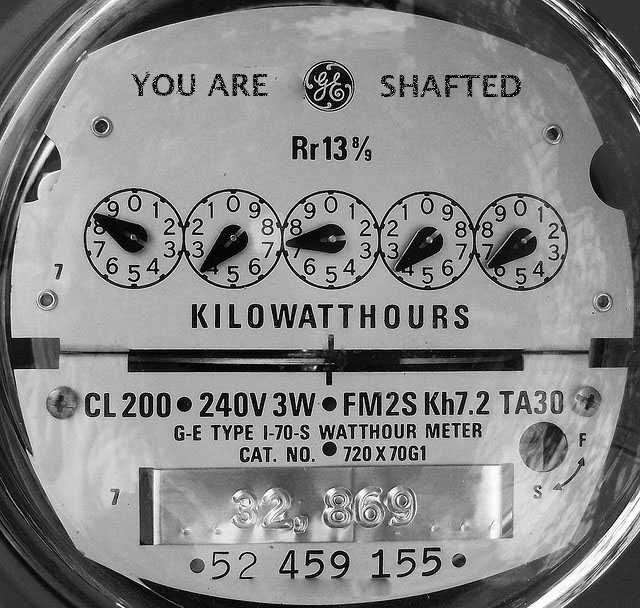The Olympics has fixed everything. Before the games we were worried about the economy, but surely now the UK* economic engine will race away from the rest of the world like Chris Hoy on the final lap of the Keirin. British stuff is now cooler, cheaper and more plentiful than any other stuff; we could slap a Union Flag on a box of snow and sell it back to Eskimos. The Olympics has fixed everything.
The Olympics has fixed everything. Before the games we worried about education, about an education secretary who obsessed about standards but who would not assess research evidence about what works in teaching. Who is facing a severe shortage of school places, but instead of spending the serious money needed to provide classrooms for these places, wastes his time, money and effort on his pet free-school project which is the education policy equivalent of one of those denuded poodles you can buy to keep in your handbag. And we worried about standards, with UK children supposedly in free fall down the revered PISA tables, soon to be overtaken by kids from Mongolia, Chad and Albania in terms of skills in languages, science and maths. But now we see the way forward, no need to worry about complex decisions about teacher development, pedagogy and school organisation. The answer is simple, we *do* competitive sports; just get a politician to announce funding (which they had taken away in the first place) for good old fashioned team sports like Hockey, Football and British Bulldog and watch the UK rise back up through the tables. After all we came 3rd in the medal table, surely that will give the PISA rankings a boost? See, the Olympics has fixed everything.
The Olympics has fixed everything. Before the games we worried about deep social, cultural and racial divisions in our society. Last year we stared into the abyss as British Citizens took to the streets to plunder, burn and create mayhem. The police response was feeble initially, as they proved to be only be good at stopping nice middle class people who take to the streets to protest things like tuition fees or the Iraq war, rather than more determined types set on a new pair of trainers from a burning branch of Foot Locker. We worried about the plight of young people who could not find work, and whose EMA, a small but vital lifeline to encourage them to continue in training and education, was cut by Michael Gove with the relish of a Victorian father back from the mill throwing his children’s toys onto the fire and setting them up with 4 hours of bible reading instead. How, we asked, could the UK overcome these deep divisions, and is more unrest on its way unless the political elite could do something other than obsessing about their media image and sit down and make some difficult, bold and creative decisions about tackling this problem? But the Olympics has fixed everything. Racism isn’t cool anymore, Jessica Ennis and Mo Farah secured gold medals. Ye Gods, Mo Farah is even an immigrant. In the ultimate zero to hero ascent for a social grouping, he succeeded into turning immigrants from ‘the people who would ruin this land turning it into the ultimate festival of the ‘something for nothing’ culture’; to those who could save us with their fantastic running skills and endearing self-deprecating mimes. Athletes ‘other than those with white skins’ won buckets of Olympic medals and not even The Sun or The Daily Mail could get a bad word in about them, so the Olympics has fixed everything, the racial tensions and social divisions have all gone now. Even John Terry has seen the error of his ways. The spirit of the Olympic park will suffuse over the entire nation.
The Olympics has fixed everything. Some of us before the games worried about the chopping up of the NHS and its sale by Tory vandals to the highest (or maybe lowest) bidders from the private sector. We worrried that universal healthcare, the GOLD medal for a civilised society, was being sliced up for ideological and profit purposes and that in the future care would be more uneven, of poorer quality and only those rich enough to afford American style insurance policies could benefit. But the Olympic games has fixed everything. Our concern about the ability of the private sector to deliver on services provided by the state has gone. G4S stepped into the breach admirably on security, providing nearly 20% of what they had promised in terms of guards for the games. True the uniforms did cost £7K each, but this was a stunning lesson in how well the private sector can deliver. Our fears about the NHS are unfounded it seems, it will be safe in the caring arms of the private sector. And an added bonus of the legacy of 2012 is that we’ll all be so healthy that health care will probably be a thing of the past. Apart from the odd torn hamstring from our two hours of sport a day, all other diseases and illness will largely leave this great nation of ours. The Isle will be full of noises, but not ill people. We’ll probably all live forever now, the Olympics has fixed everything.
* I know that Great Britain (as in team GB) and the UK are not the same thing, but I decided on using the most common terms and not the ones which are geo-politically the most correct. If this kind of thing really bothers you, then this may not actually be the blog for you 🙂
Image licensed under Creative Commons, by Tab59. Available http://bit.ly/PdSXjO





